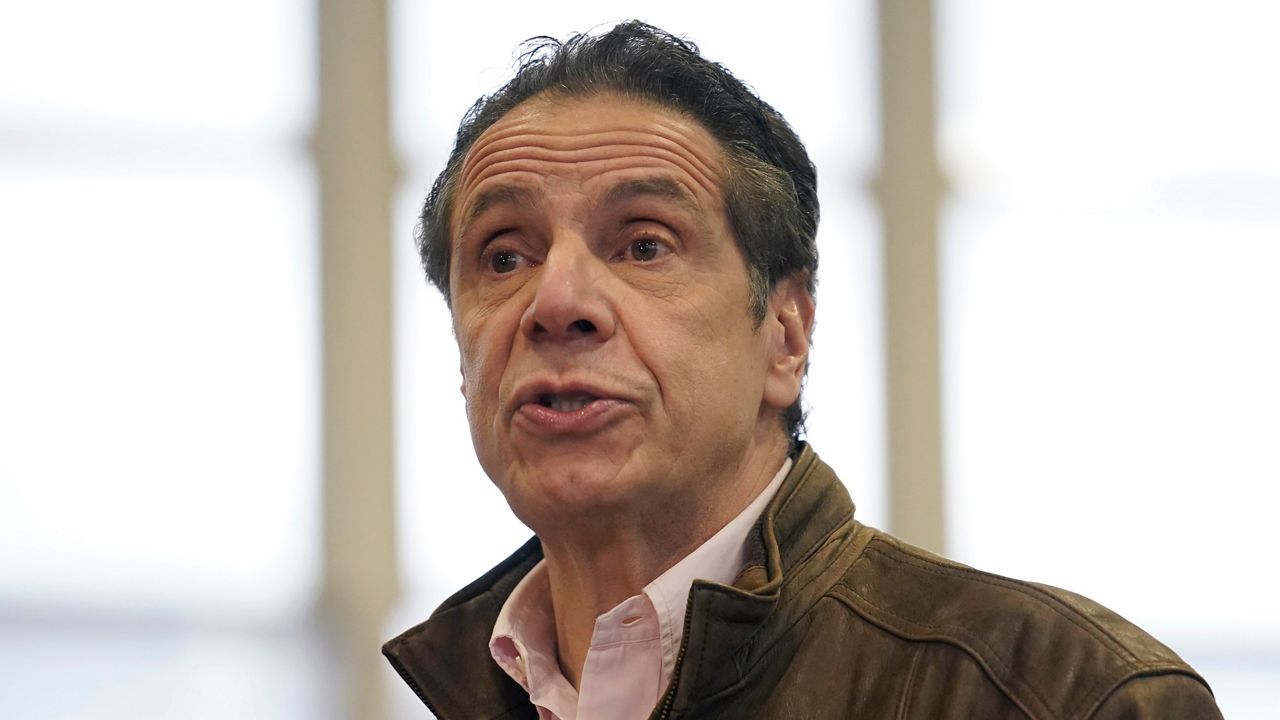A year ago today, New York confirmed its first case of the COVID-19 virus. In a few short weeks, hospitals would begin to fill up with COVID-19 patients, people would begin to die by the hundreds a day, businesses would be shuttered, schools closed, nursing homes receive sickened residents, and Gov. Andrew Cuomo's daily presence on midday TV would launch him into the political stratosphere.
A year later, a lot has changed.
Cuomo is now fighting for his political life after a second woman who had worked in his office came forward to allege the governor sexually harassed her. He is facing a parallel controversy surrounding nursing home deaths in New York, sparked first by Attorney General Letitia James's report the state under-counted where residents died during the pandemic and later by a leaked conversation of his top aide acknowledging to state lawmakers the administration initially withheld information from them in order to avoid a federal inquiry.
In short, Cuomo is now facing the most serious challenge to remaining in the office he was first elected to in 2011, a decade of tumult in which he tamed Albany by largely mastering so much of it.
Cuomo has faced controversies and scandals in the past: The shuttering of the anti-corruption Moreland Commission in 2014 after it had been apparently used as leverage to win passage of new ethics laws and the arrest of his former close aide, Joe Percoco, on bribery charges as part of much larger case that drew in the governor's signature economic development program and top donors.
Both times, the governor himself was never implicated or accused for wrongdoing. In the past controversies and scandals, Cuomo could always count on an apparatus in the state political-business world to have his back, including some key labor unions, and allies in the real estate and health care industries. But this, to say the least, is very different.
Members of the Legislature, from the leadership and rank-and-file on down, did not accept Cuomo's initial plan to appoint his own investigator to review sexual harassment claims against him. They similaly rejected his plan to have the attorney general and state's top judge, Janet DiFiore, select the lead counsel under an arrangement that would have lacked the force of a subpoena.
Within the scope of 24 hours, Cuomo was forced to back pedal, and indicate his office would grant Attorney General Letitia James the power to refer the case to a special counsel with subpoena power under state law. Cuomo's office has pledged to cooperate.
Cuomo perhaps knows how powerful a state AG can be with a subpoena in hand.
Attorney General Andrew Cuomo had been granted referral power to investigate controveries within the administrations of his immediate predecessors, Eliot Spitzer and David Paterson, leading to devastating political consequences for both men.
Over the last 12 months, Cuomo would be launched into a new kind of political stardom, unusual for a governor who has spent so much time in office without building the kind of national political following among those who run for president.
Cuomo's news conferences and slide shows boosted his approval rating to record highs after a few middling months of unfavorability among New Yorkers pre-pandemic, offering a contrast to President Donald Trump's response.
He would write a book about the experience, detailing a crisis communications strategy.
But questions lingered over the state's decision to send COVID-19 positive people into nursing homes during the worst of the pandemic in the early spring. The state now says more than 15,000 residents of nursing homes and long-term care facilities have died in the last year.
The image of the effective manager, too, morphed into a different character with Assemblyman Ron Kim, a Democrat and critic of the governor's handling of nursing homes during the pandemic, who alleged Cuomo threatened his career in a phone call.
And then, allegations first leveled in December by former economic development aide Lindsey Boylan, now a Manhattan borough president candidate, were specified in an essay she made public on Wednesday. She alleged Cuomo sexually harassed her for years, including an unwanted kiss in his New York City office. Cuomo has denied these allegations.
Cuomo on Sunday acknowledged he sometimes attempts to make jokes in the workplace, but insisted he never propositioned someone for sex, and never inappropriately touched anyone. He offered an apology to anyone made to feel uncomfortable.
Now Albany is heading into a state budget month, facing questions over the state's finances, impacting taxes and schools, and the health care of millions of New York residents.
The budget, due in a month, would also test whether lawmakers would move to scale back the governor's authority over conducting the pandemic as public health officials warn of a tipping point amid the emergence of new variants.
The 24 hours news cycle over the last weekend was consumed by Cuomo's effort to control the investigation. In a normal weekend, there would likely have been much more focus on the pandemic that continues to have a far broader impact on the lives of 19 million New Yorkers.
Cuomo's office announced on Sunday, for instance, more than 4.4 million second doses of the COVID-19 vaccine had been administered.
Hospitalizations have dropped by 186 patients to 5,259 people. There 90 confirmed deaths on Sunday, and the state's positive rate stands below 3%.
Cuomo in a briefing today would likely announce today is day 365, after a year of grief, anxiety, and suffering. For now, his Monday schedule is blank.



